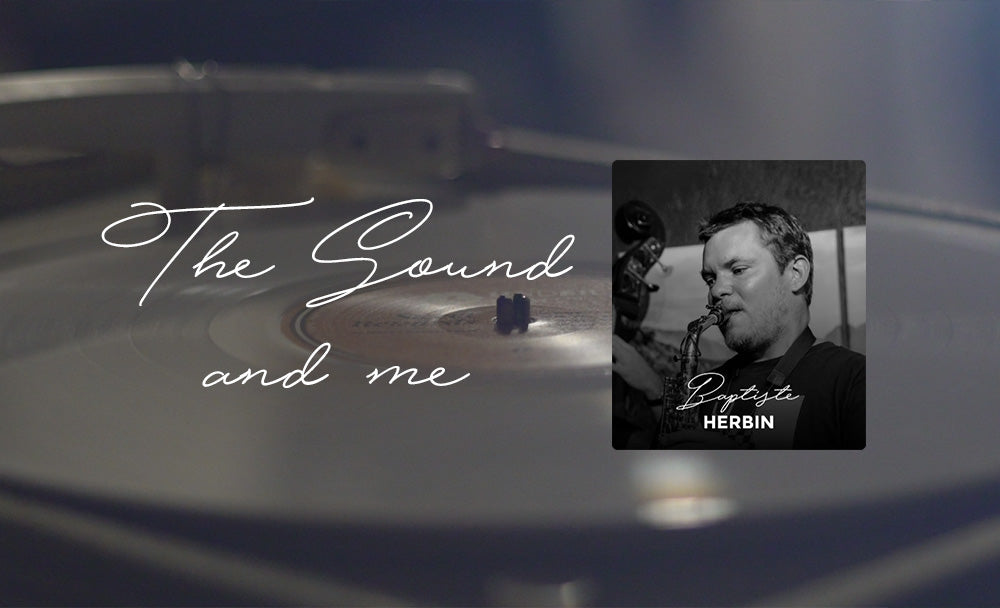The Sound and me #10 with Baptiste Herbin

Take possession of a sound
Often, the first thing that the public tells you when you come out of a concert, the public will talk to you about your sound first before to talk to you about music or your technique, which is rather quite interesting... Sound is part of a choice. Just like you have a voice and you can't change it, except that we still make choices as soon as you are a child by taking our parents as an example, and our relatives and friends. We also take possession of a sound, we learn to acquire this sound, with a certain education.
I know that, for example, at the beginning, I wanted to play tenor, but I heard the sound of Maceo Parker and I stuck to the alto because that sound, which is indefinable, had resonances in me and my emotions that made me decide to continue playing the alto and to support and present this instrument. The other characteristics of sound is that I love Paul Desmond as much as I love Charlie Parker or Cannonball or even Ornette Coleman, because they are complementary and because we come to different emotions.
And... I believe that one's personal choice is made according to all these examples, according to what we listen to on a daily basis. And finally, I think that having your own sound is revealing yourself to people and say to yourself: here I am Baptiste Herbin, or I am so-and-so, I'm like that, and my sound is representative and it is my identity.
Find your own voice
The Baptiste Herbin's sound...I don't know if there is a Baptiste Herbin's sound but in any case, what I feel and what I want - it's always a matter of choice in music and especially in improvised music like jazz - I want a powerful, wide sound, centered at the same time, something not necessarily loud, but something that goes far.
I want to spread my timbre and I also want to have several dynamics. I want to be able to cry with my sax, I want to be able to scream, I want to be able to laugh. I want to be able to have the same feelings as if I was expressing myself by singing, like a spokesperson. The saxophone will operate in this role. This sound also need to be worked with a certain color and a certain signature. It will also work with a certain material, but it's really mentally what we have in mind. For sure, it depends on the education we have. If we listen much to Charlie Parker, Cannonball, Lee Konitz or Paul Desmond, all these very different sound colors will make our education and we'll try to synthesize it. I call this step copying and education. When you are a child in order to learn to talk, you listen to your parents. I feel that, as a young musician, you listen to the greatests before you can find our own voice. And this is essential to find your own voice. Unless you're a genius like some people who did not need to go through this step, there are some.
I think I had to go through this step, and afterwards, you manage to make a certain synthesis to succeed in finding his own voice. Recordings after recording, you can make your choices and also have your own color, your own dynamics.
A sound that is universal
The other thing, to conclude on this idea of a personal sound, is that I want a sound that is universal. It's very difficult to get. That is to say that I want to be able to play all styles of music that are offered to me, and with musicians that I am lucky enough to meet, whether it's Balkan music, music from Madagascar, Brazil, Mexico, whether it's several projects in jazz, big band, or trio, whether it's soprano or alto. I'm going to think the same thing when I play the flute or Malagasy valiha. It's always going to be the same.
And by the way, even when I work at home, even when I work scales or things that can be off-putting, I will always focus on that essential thing that is sound and always try to have a sound that can be adapted to all registers and all possible situations.
► Learn more about Baptiste Herbin
► See all the episodes on our Facebook page